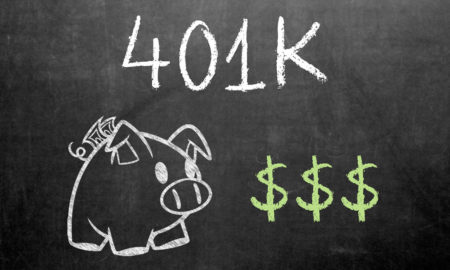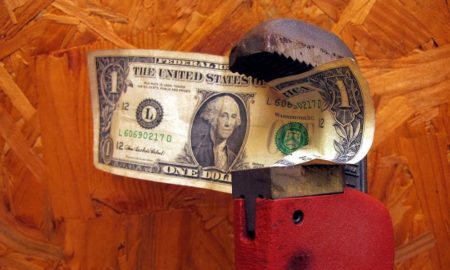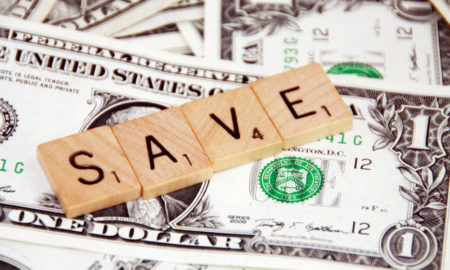

As I wrote on my last post, I keep track of my finances several times a month, to make sure all my cash is allocated optimally, and earns me money passively. I get that not everyone is a hard core money geek, however, let’s see if a quick spring cleaning of your finances can help you make a little money quick.
Here are a few things to look for:
1. Review all your accounts
I don’t like doing this one, so I’ll start with it and get it over with. By reviewing all accounts, I mean looking at your bank statements from last quarter, and making sure there are no fraudulent charges, no overdraft fees you forgot to get waived, and no charges for stuff you don’t use anymore, like a gym or a book club membership. It takes a bit of time, specially if you need to call your bank to get charges waived, which they will if you ask nicely.
Last time my bank charged me $25 on top of the steep $50 for an international transfer, and one email was all it took to get it waived. Worth two minutes of my time.
2. Challenge your expenses
Once you have done your statement audit, and made sure there were no unusual charges, it is time to consider if the legit ones are actually necessary.
Are they? Really? Did you get so much enjoyment out of you latest purchase that it was worth a week of your work?
You can easily export all your data into a money management software like Mint. Within minutes, you’ll get some cool pie charts telling you where your money went. 40% on food and eating out? There might be room for improvement.
An easy system to reduce your discretionary spending is to give yourself a cash allowance for the week. Once it’s gone, it’s gone. And it hurts more to see the cash leave your hands than to swipe your card.
3. Reduce your debt payments
One thing that cripples your finances is paying more than you have to for your debt. That includes credit card payments, student loans, car loans and any other monthly payments that you may have. For credit cards, try to look for a 0% balance transfer card. Transferring $1,000 from a 19% APR card will save you $190 annually. It takes just a few clicks to apply for a new card online. Now instead of paying interest, try to keep paying the same amount on the card each month, to accelerate your repayments.
If there are no good offers available to you, try calling your credit card company. Explain that you’ve been shopping around and want a better deal, they may reduce your rate. Especially if you mention financial hardship, because they know they will be unlikely to get their money back if you are broke. So they’d rather get a little less ASAP.
4. Refinance your mortgage
I see a lot of people being frugal and trying to save money here and there, yet carrying a high interest on their biggest purchase, their house. It makes no sense
A 0.25% difference on your mortgage rate can save you thousands over the life of the loan. And refinancing is now super easy to do online. My last refinance took me 20 minutes because I stayed with the same bank and they already had all my data. Again, a very healthy hourly rate.
So take a minute to go to a mortgage comparison site and see if there are better offers for you.
5. Negotiate your bills
Every year, I call my broadband provider and ask them to keep me on the new customer discount. It has worked for the past 12 years. It goes like that:
Me: “Hi, I’m on a 12 months contract that expires soon, I like you guys but I’m paying $15 now and if you increase to $30 I’d rather take a $15 deal with (other provider that you’ve looked up on a comparison site). Is there anything you can do?”
Rep: “Let me check (fake types a lot of stuff on the system to keep the suspense)….. oh yes, we can keep you on your deal if you commit to another 12 months with us”
Me: “Sure, that would be lovely”. And cost you guys a lot less than acquiring a new customer. Everyone wins, and the 10 minute phone call saves me $180 a year.
You can do that with many providers, TV, cable, internet, etc. or simply once more use a comparison site and switch to a competitor. I use switching for electric rates, and then put a date in my calendar a month before the new deal ends to start looking again.
6. Shop around for savings accounts
You could argue that in this environment where a “high yield” savings account is around 1%, having your money at 0.25% doesn’t make much of a difference.
Well, every little helps. If anything, that will protect you against inflation. With online banking, switching and transferring money from one place to the other is easy.
So go ahead and move your cash where it will earn more. Some banks offer a bonus to sign up, and a nice introductory rate, so make a calendar note to look again when that ends.
7. Plan your holidays
Nothing worse than getting some time off and having no cash to enjoy it. Spring is the perfect time to start planning for summer. Book your flights early, sign up for a reward credit card that will give you miles and free hotel nights, and sign up to hotel chains newsletters to find out when they are having sales.
8. Plan for Christmas
Or any big thing that will happen this year. Christmas is a sure thing, and it is 10 months away. If you need $1,000, it will be much easier to save $100 a month, or $25 a week, than saving $500 in October and November. The same goes with your car insurance premiums, the kids’ extra curricular activities and other stuff that you pay once a year. Set up sub-saving accounts and start sending monthly deposits so the expense is covered when it comes due.
9. Invest your tax refund
A tax refund is NOT free money. It is money you overpaid last year that the State gives you back. So consider it a forced savings account, and invest it somewhere you won’t be tempted to spend it. If you won’t need the money for a while, consider buying some stocks and shares or some index funds, or get started with peer to peer lending.
10. Get your company match
If you are not getting your full company 401k match, you are passing on free money.
Don’t be that person. Review the company’s terms and conditions, and get your full match. Also try to use your cash refund to max out your 401k for the year. A 100% match is an instant 100% return on investment. Doesn’t get better than that.
11. Put your finances on auto-pilot
The same way you should automate your monthly savings so you’re ready for Christmas, you should also send a fixed sum every month to a robo-advisor or another investment vehicle, to save for retirement. Because everything is automated, you won’t miss the money, you won’t be able to make excuses about why you forgot to do it, and you won’t be taken by surprise when it’s time to retire in style.
You can always cancel an automatic payment if it compromises your financial balance, whereas counting on your will power to make the payments manually every single month isn’t realistic.
12. Put your money A-W-A-Y
Now that we’ve made money appear on your bank account, let’s make it disappear again. Money dormant in your current account is a temptation to spend it (hey, it’s there!), and a missed opportunity to make more.
Dormant money in the bank is a missed opportunity to make moreClick To TweetYour money should be working hard for you. So any surplus on your bank account should go to:
- Paying off high interest debt. That’s your #1 emergency. Earning nothing while paying 19.99% APR makes no sense. “Yes, but what if I need the cash?” Well then you’ll charge your card again IF the time comes, and in the meanwhile avoid paying interest.
- A high yield savings account, if you plan on using the money within a few month. You can replenish your emergency fund, or keep it for a bigger purchase.
- Your company’s 401k and other tax deferred or tax free investments. Like an HSA, Roth IRA and so on.
- Plain investing through a robo-advisor
- Anywhere it will earn you more than 0%.
The whole spring cleaning will take you a half day or so, and can save you thousands. It is one of the highest returns on investment you can get for your time, so get to it!

























1 Comment